Your search “Keep%20the%20death%20penalty%abolished%20in%20the%20ePhilippfines%20e%20e%20e%20e%20e%20e%20e%20e%20e%20e%20e%20e/page/q26%individuals%20than%20eOhio%intends%20to%20eexecute%20death%20esuffer%20efrom%20esome%20ecombination%20of%20esevere%20emental%20eillness,%intellectual%20edisability,%20eserious%20echildhood%20etrauma%20efrom%20ephysical%20and%20esexual%20abuse,%20for%20ewere%20eyoung%20eadults%20ewith%20eimpaired%20ejudgment%20ewhen%20the%20ecommitted%their%20ecrimes. ”
Document(s)
Malawi – Committee on the Elimination of Discrimination Against Women – Death Penalty – January 2022
on 31 January 2022
2022
NGO report
World Coalition
Malawi
Women
More details Download [ pdf - 311 Ko ]
Detention conditions for women in Malawi are crowded, and women in prisons are not given adequate food and nutrition. Specifically, many prisons only serve people with one meal a day, often consisting of a maize meal (nsima) and peas or beans. Overcrowded conditions are a particular concern during the COVID-19 pandemic, when risk of transmission of the disease is high. Prison conditions in Malawi amount to inhuman and degrading treatment.
Women in death penalty proceedings in Malawi lack access to qualified legal representation. Defense advocates in Malawi who are assigned to capital cases often lack relevant experience. In at least one case, a lawyer failed to raise the complete defense of self-defense in representing a woman who killed her husband as a result of a long history of domestic abuse. Had the defense been raised, it is possible that the woman would not have been sentenced to death. Moreover, women from poor and marginalized communities are disproportionately affected by the death penalty because when they are accused of crimes, they are often unable to understand the charges against them because they are illiterate and cannot read the complaint against them. They are also unable to retain private counsel.
Women who face extensive gender-based violence are disproportionately affected by the death penalty in Malawi, including those who seek to protect themselves against their abusers. Long histories of gender-based violence can result in complex trauma and can exacerbate psycho-social or intellectual disabilities, yet sentencing courts fail to take these nefarious effects into account as factors in mitigation of a death sentence.
- Document type NGO report / World Coalition
- Countries list Malawi
- Themes list Women
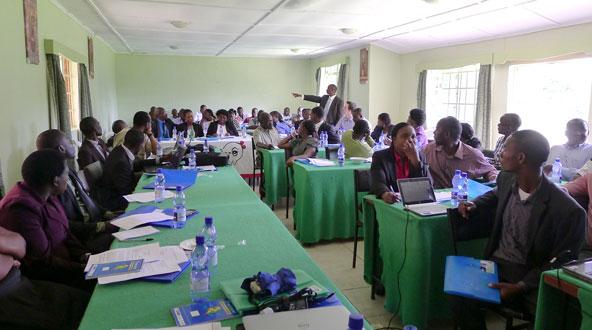
Article(s)
Mental health seminar takes Malawi a step closer to resentencings
By Emile Carreau, on 28 January 2015
The Malawi Human Rights Commission (MHRC) held a two-day seminar on mental health evaluations in preparation for the resentencing of nearly 200 individuals after their mandatory death sentences were deemed unconstitutional.
2015
Malawi
Malawi
Mental Illness
Document(s)
Issues Impacting LGBTQ+ Prisoners
By Death Penalty Information Center, on 3 September 2024
2024
NGO report
Cruel, Inhuman and Degrading Treatment and Punishment
Fair Trial
United States
More details See the document
LGBTQ+ people, especially people of color and low income, experience high levels of policing and criminalization, leading to an overrepresentation of these individuals in the incarcerated population. A 2017 study from researchers at the University of California, Los Angeles School of Law, suggests that LGBTQ+ people are three times as likely to be incarcerated than the general population. Once incarcerated, LGBTQ+ people are often subjected to violence from correctional staff and fellow prisoners, as well denied medical care and access to mental health services.
- Document type NGO report
- Countries list United States
- Themes list Cruel, Inhuman and Degrading Treatment and Punishment / Fair Trial
Document(s)
Abolitionnist portrait
By World Coalition against the death penalty , on 10 October 2004
2004
Campaigning
Trend Towards Abolition
frMore details See the document
Abolitionnist portrait
- Document type Campaigning
- Themes list Trend Towards Abolition
- Available languages Portrait d'abolitionnistes
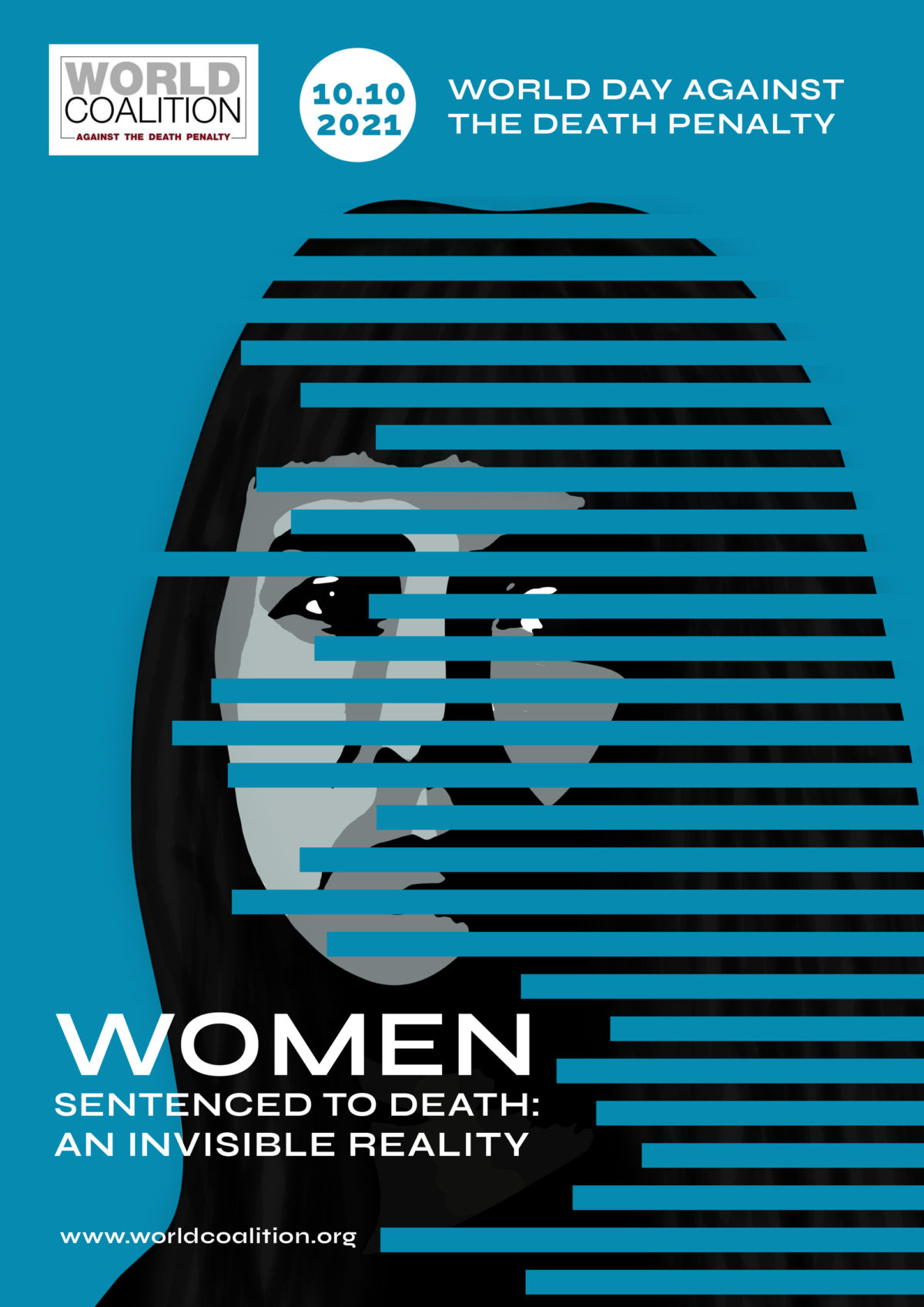
19th World Day Against the Death Penalty – Women and the death penalty, an invisible reality
on 10 June 2021
On 10 October 2021, the World Day will be dedicated to women who risk being sentenced to death, who have received a death sentence, who have been executed, and to those who have had their death sentences commuted, exonerated, or pardoned.
2021
Women
Document(s)
Does care have to be at the periphery if crime is at the centre? A conversation that unspools the various threads tying feminism with crime.
By The Third Eye, on 15 February 2024
2024
Article
Gender
Women
More details See the document
Published on January 30, 2024.
The Third Eye invited Maitreyi Misra of Project 39A to help us think through our central idea: why do we need a feminist way of looking at crime, and how does that help the larger goal of social justice?
Project 39A is inspired by Article 39-A of the Indian Constitution, a provision that furthers the intertwined values of equal justice and equal opportunity by removing economic and social barriers. Using empirical research to re-examine practices and policies in the criminal justice system, Project 39A aims to trigger new conversations on legal aid, torture, forensics, mental health in prisons, and the death penalty.
- Document type Article
- Themes list Gender / Women
Document(s)
Philippines – Committee on the Elimination of Discrimination Against Women – Death Penalty – June 2022
on 21 July 2022
2022
NGO report
Philippines
Women
More details Download [ pdf - 443 Ko ]
The Government of the Philippines has taken commendable steps toward protecting and promoting the rights of women overseas Filipino workers (OFWs), but those workers remain vulnerable to exploitation and abuse, and when they come into conflict with the law in their host countries, their vulnerabilities are compounded by linguistic and legal barriers, as well as judicial systems which fail to account for the gendered context in which they allegedly committed criminal acts. The Government of the Philippines should do more to ensure protection of the rights of these women OFWs, particularly when they are at risk of being sentenced to death.
- Document type NGO report
- Countries list Philippines
- Themes list Women
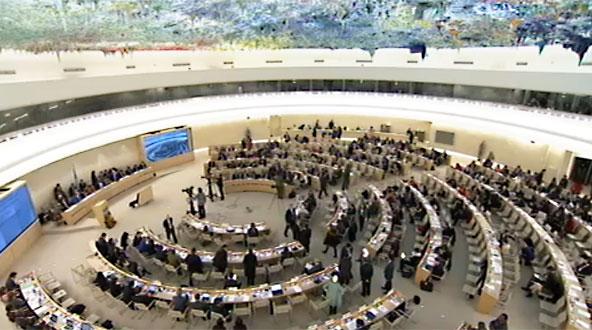
Article(s)
Civil society instrumental in UN monitoring of progress towards abolition
By Thomas Hubert, on 22 September 2014
The World Coalition and its members are present at every step in the international human rights law process – from the signature of human rights treaties to the verification of their implementation. Their contribution is yielding more and more concrete results.
2014
Indonesia
United States
Article(s)
167 Ugandan death row inmates saved from gallows
on 19 September 2010
Recent figures show that a January ruling by the Ugandan supreme court making it illegal to keep people on death row for more than three years has saved 167 lives.
2010
Cruel, Inhuman and Degrading Treatment and Punishment
Uganda
Article(s)
Four World Coalition members among NCADP award winners
on 3 February 2008
Each year, the US National Coalition Against the Death Penalty honours those individuals and organisations that have made outstanding contributions to the struggle against the death penalty. This year’s award winners included a number of World Coalition members.
2008
United States
Document(s)
Leaflet – World Day 2024 & 2025
By World coalition against the death penalty, on 10 June 2024
2024
Campaigning
World Coalition
arfrMore details Download [ pdf - 1325 Ko ]
Every 10th October, the World Coalition Against the Death Penalty and abolitionist actors worldwide celebrate the World Day Against the Death Penalty. It is an occasion to highlight the progress achieved in the global campaign for the abolition of capital punishment. In 2024 and 2025, the World Day will serve as an opportunity to challenge […]
- Document type Campaigning / World Coalition
- Available languages كتيب - اليوم العالمي 2024 و 2025Brochure - Journée mondiale 2024 & 2025
WorldCoalition2014Posters_ArabicFinal-page-0011-1.jpg
on 8 September 2020
2020
WorldCoalition2014Posters_Translated_Russian-page-001-1.jpg
on 8 September 2020
WorldCoalition2014Posters_Translated_Chinese-page-001-1.jpg
on 8 September 2020
WorldCoalition2014Posters_Translated_Spanish-page-001-1.jpg
on 8 September 2020
WorldCoalition2014Posters_Translated_Farsi-page-001-1.jpg
on 8 September 2020
Article(s)
30 countries gather in Rome to oppose capital punishment
on 21 May 2010
17 ministers and numerous experts met in Rome on May 17 to discuss crime-busting policies that reject the death penalty. Representatives for the Republic of Congo and Burkina Faso pledged their support for abolition.
2010
Italy
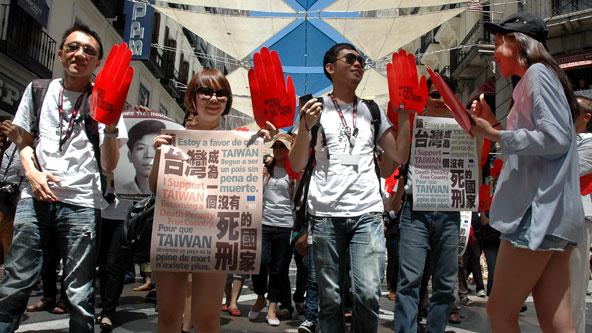
Article(s)
Asian progress paves the way for new strategies
By Thomas Hubert, on 20 June 2013
Although most executions continue to take place in Asia, their number is going down – and abolitionists are coming up with new ideas to bring about abolition.
2013
India
Japan
Malaysia
Mongolia
Moratorium
Singapore
Document(s)
The politics of capital punishment for foreign nationals in Iran
By Death Penalty Research Unit (DPRU), University of Oxford, on 5 February 2024
2024
Academic Article
Iran (Islamic Republic of)
More details See the document
Published in December 2023.
This paper seeks to map the political economy of capital punishment in Iran, in particular in relation to dual and foreign nationals, and examines its external and internal functions. The external functions include suppressing the ‘cultural threat’ of cross-border drug trafficking, achieving more power in sanctions negotiations, seeking reciprocal prisoner swaps or demanding recompense for outstanding multinational debt. The internal functions include quashing protests against the regime, supressing separatist movements, or even just ‘otherness’. It is evident that those facing disadvantage across foreign national and intersectional lines face the death penalty disproportionately. In addition, although only representing a fraction of the overall population of death row, the arbitrary detention of dual nationals has a disproportionate political function.
- Document type Academic Article
- Countries list Iran (Islamic Republic of)
Document(s)
Roper and Race: the Nature and Effects of Death Penalty Exclusions for Juveniles and the “Late Adolescent Class”
By Craig Haney, Frank R. Baumgartner and Karen Steele, on 20 October 2022
2022
Academic report
United States
More details See the document
In Roper v. Simmons (2005), the US Supreme Court raised the minimum age at which someone could be subjected to capital punishment, ruling that no one under the age of 18 at the time of their crime could be sentenced to death. The present article discusses the legal context and rationale by which the Court established the current age-based limit on death penalty eligibility as well as the scientific basis for a recent American Psychological Association Resolution that recommended extending that limit to include members of the “late adolescent class” (i.e., persons from 18 to 20 years old). In addition, we present new data that address the little-discussed but important racial/ethnic implications of these age-based limits to capital punishment, both for the already established Roper exclusion and the APA-proposed exclusion for the late adolescent class. In fact, a much higher percentage of persons in the late adolescent class who were sentenced to death in the post-Roper era were non-White, suggesting that their age-based exclusion would help to remedy this problematic pattern.
- Document type Academic report
- Countries list United States
Document(s)
Lebanon – Committee on the Elimination of Discrimination Against Women – Death Penalty
on 12 January 2022
2022
NGO report
World Coalition
Lebanon
Women
More details Download [ pdf - 1599 Ko ]
This report addresses Lebanon’s compliance with human rights obligations under the Convention on the Elimination of All Forms of Discrimination Against Women regarding its use of the death penalty.
Lebanon has not abolished the death penalty or established a de jure moratorium on the death penalty. The legal system does not protect women in conflict with the law from discrimination on the basis of sex or gender. Nor does it limit capital offenses to the “most serious” crimes.
Women migrant domestic workers appear to be at an elevated risk of being sentenced to death. Indeed, all three women known to be on death row in Lebanon are Sri Lankan migrant domestic workers. Such women face heightened obstacles to realizing their right to a fair trial. Moreover, there is no evidence that sentencing authorities take into account a woman’s history of abuse when determining an appropriate sentence. Finally, women under sentence of death face degrading conditions of detention.
- Document type NGO report / World Coalition
- Countries list Lebanon
- Themes list Women
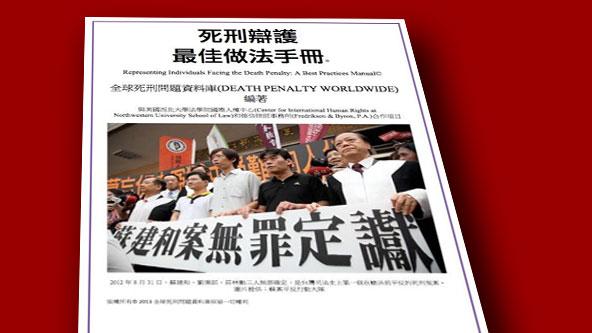
Article(s)
Lawyers’ manual published in traditional Chinese
By Taiwan Alliance to End the Death Penalty, on 30 November 2013
On the occasion of Cities for Life Day on November 30, the Taiwan Alliance to End the Death Penalty (TAEDP) and the World Coalition Against the Death Penalty are proud to announce the online publication of the Chinese version of Representing Individuals Facing the Death Penalty: A Best Practices Manual. This publication is intended for lawyers who defend people facing the death penalty around the world.
2013
China
Legal Representation
Taiwan
Taiwan
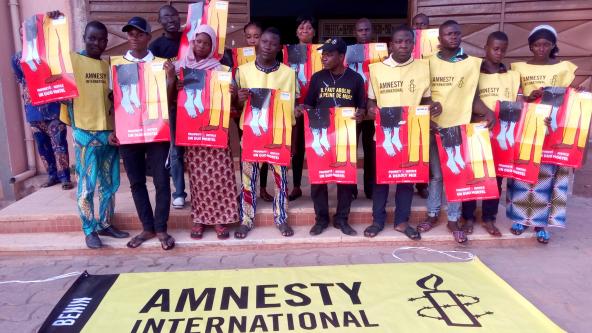
Article(s)
Strong mobilization in Sub-Saharan Africa on World Day
By Thalia Gerzso, on 19 October 2017
On October 10, 2017, all the abolitionists all around the world joined their forces to celebrate the 15th World Day Against the Death Penalty. The mobilization was particularly strong in Sub-Saharan Africa where many events were organized. Thus, the pugnacity of African abolitionists put the abolition of the death penalty at the heart of every discussion.
2017
Public Opinion
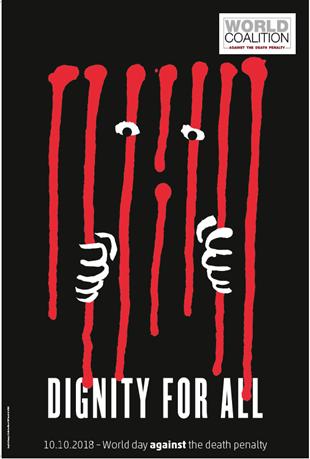
Article(s)
Overcoming the isolation of the people sentenced to death and their relatives
By World Coalition Against the Death Penalty, on 10 September 2018
One of the observations made by the World Coalition while doing the preliminary work for this year’s World Day, is the isolation in which the people sentenced to death might live.
2018
Death Row Conditions
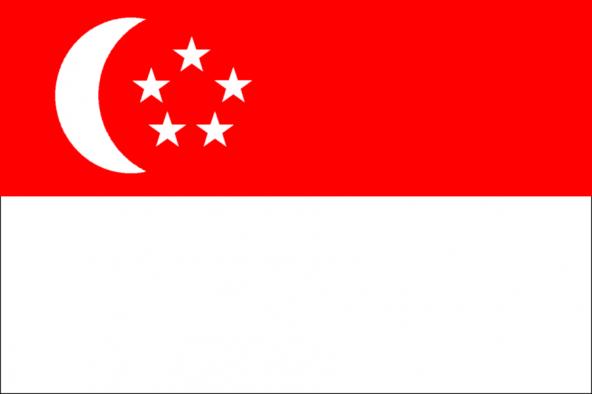
Article(s)
Singapore Executes People Sentenced to Death for Non-violent Crimes and Threatens their Lawyers
By Dinda Royhan, on 19 September 2019
On 13 July 2019, Think Centre reported that 32 executions have occurred in Singapore since it ended its moratorium on the death penalty in 2014. At the same time, lawyers defending capital cases have reported receiving threats from the government. As of the date of writing, Singapore is among 24 world states that have not ratified the ICCPR and its protocols.
2019
Drug Offenses
Legal Representation
Singapore
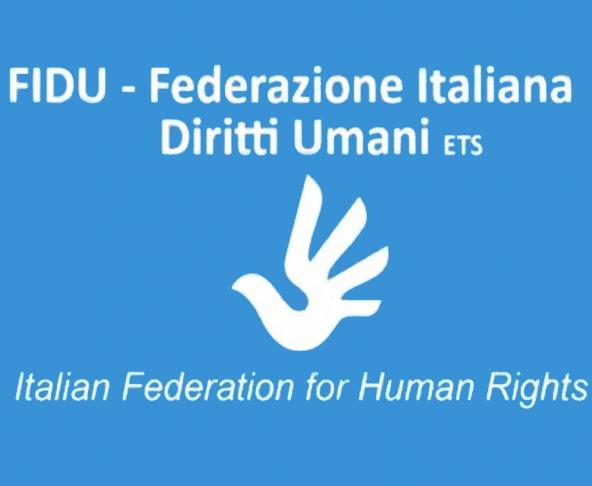
Member(s)
Italian Federation for Human Rights (FIDU)
on 30 April 2020
Active since 1987 as Italian Helsinki Committee, FIDU promotes the protection of human rights as enshrined in the Universal Declaration of Human Rights of 1948, the International Covenant on Civil and Political Rights and the International Covenant on Economic, Social in other relevant international documents. FIDU therefore intends to work to spread the knowledge of […]
2020
Italy

Article(s)
Recent US Federal Executions Raise Ethical and Political Issues
By Louis Linel, on 2 September 2020
Two more federal executions were carried out at the end of August in the United States of America. The abolitionist movement in the United States denounces human rights violations, challenges the cost of the death penalty in this time of crisis and even opposes its disrespect for tribal sovereignity.
2020
Fair Trial
Intellectual Disability
Public Opinion
United States

Article(s)
Calendar of events for World Day 2014
By World Coalition Against the Death Penalty, on 19 August 2014
On 10 October 2014, the 12th World Day Against the Death Penalty is drawing attention to people with mental health problems who are at risk of a death sentence or execution. Browse the schedule and the map to prepare and promote the events planned around the world on the big day.
2014
Intellectual Disability
Mental Illness

Article(s)
Improved access to unique global death penalty library
By Thomas Hubert, on 10 July 2014
The World Coalition has redesigned its online library to help visitors find the documents they need in its multilingual database of resources and campaigning tools on capital punishment.
2014
Clemency
Cruel, Inhuman and Degrading Treatment and Punishment
Death Row Conditions
Drug Offenses
Fair Trial
Innocence
Intellectual Disability
Juveniles
Legal Representation
Mental Illness
Moratorium
Murder Victims' Families
Public Opinion
Terrorism
Women
Document(s)
Keep the Death Penalty Abolished in the Philippines (Kapampangan)
By World Coalition Against Death Penalty, on 23 March 2021
2021
Campaigning
Drug Offenses
Philippines
More details Download [ pdf - 731 Ko ]
This brochure was developed by the World Coalition Against the Death Penalty with the Commission on the Human Rights in the Philippines. It explains why the death penalty risks returning in the Philippines and the reasons against its resurgence. It is available in 11 languages of the Philippines, plus French and English.
- Document type Campaigning
- Countries list Philippines
- Themes list Drug Offenses
Document(s)
Keep the Death Penalty Abolished in the Philippines (Ilokano)
By World Coalition Against Death Penalty, on 23 March 2021
Campaigning
Drug Offenses
Philippines
More details Download [ pdf - 2550 Ko ]
This brochure was developed by the World Coalition Against the Death Penalty with the Commission on the Human Rights in the Philippines. It explains why the death penalty risks returning in the Philippines and the reasons against its resurgence. It is available in 11 languages of the Philippines, plus French and English.
- Document type Campaigning
- Countries list Philippines
- Themes list Drug Offenses
Document(s)
Keep the Death Penalty Abolished in the Philippines (Pangasinense)
By World Coalition Against Death Penalty, on 23 March 2021
Campaigning
Drug Offenses
Philippines
More details Download [ pdf - 1042 Ko ]
This brochure was developed by the World Coalition Against the Death Penalty with the Commission on the Human Rights in the Philippines. It explains why the death penalty risks returning in the Philippines and the reasons against its resurgence. It is available in 11 languages of the Philippines, plus French and English.
- Document type Campaigning
- Countries list Philippines
- Themes list Drug Offenses
Document(s)
Keep the Death Penalty Abolished in the Philippines (Marano)
By World Coalition Against Death Penalty, on 23 March 2021
Campaigning
Drug Offenses
Philippines
More details Download [ pdf - 1410 Ko ]
This brochure was developed by the World Coalition Against the Death Penalty with the Commission on the Human Rights in the Philippines. It explains why the death penalty risks returning in the Philippines and the reasons against its resurgence. It is available in 11 languages of the Philippines, plus French and English.
- Document type Campaigning
- Countries list Philippines
- Themes list Drug Offenses
Document(s)
Keep the Death Penalty Abolished in the Philippines (Tagalog)
By World Coalition Against Death Penalty, on 23 March 2021
Campaigning
Drug Offenses
Philippines
More details Download [ pdf - 2519 Ko ]
This brochure was developed by the World Coalition Against the Death Penalty with the Commission on the Human Rights in the Philippines. It explains why the death penalty risks returning in the Philippines and the reasons against its resurgence. It is available in 11 languages of the Philippines, plus French and English.
- Document type Campaigning
- Countries list Philippines
- Themes list Drug Offenses
Document(s)
Keep the Death Penalty Abolished in the Philippines (Tausug)
By World Coalition Against Death Penalty, on 23 March 2021
Campaigning
Drug Offenses
Philippines
More details Download [ pdf - 2595 Ko ]
This brochure was developed by the World Coalition Against the Death Penalty with the Commission on the Human Rights in the Philippines. It explains why the death penalty risks returning in the Philippines and the reasons against its resurgence. It is available in 11 languages of the Philippines, plus French and English.
- Document type Campaigning
- Countries list Philippines
- Themes list Drug Offenses
Document(s)
Keep the Death Penalty Abolished in the Philippines (Waray)
By World Coalition Against Death Penalty, on 23 March 2021
Campaigning
Drug Offenses
Philippines
More details Download [ pdf - 1057 Ko ]
This brochure was developed by the World Coalition Against the Death Penalty with the Commission on the Human Rights in the Philippines. It explains why the death penalty risks returning in the Philippines and the reasons against its resurgence. It is available in 11 languages of the Philippines, plus French and English.
- Document type Campaigning
- Countries list Philippines
- Themes list Drug Offenses
Document(s)
Keep the Death Penalty Abolished in the Philippines (Bicolano)
By World Coalition Against Death Penalty, on 23 March 2021
Campaigning
Drug Offenses
Philippines
More details Download [ pdf - 2584 Ko ]
This brochure was developed by the World Coalition Against the Death Penalty with the Commission on the Human Rights in the Philippines. It explains why the death penalty risks returning in the Philippines and the reasons against its resurgence. It is available in 11 languages of the Philippines, plus French and English.
- Document type Campaigning
- Countries list Philippines
- Themes list Drug Offenses
Document(s)
Keep the Death Penalty Abolished in the Philippines (Hiligaynon)
By World Coalition Against Death Penalty, on 23 March 2021
Campaigning
Drug Offenses
Philippines
More details Download [ pdf - 2538 Ko ]
This brochure was developed by the World Coalition Against the Death Penalty with the Commission on the Human Rights in the Philippines. It explains why the death penalty risks returning in the Philippines and the reasons against its resurgence. It is available in 11 languages of the Philippines, plus French and English.
- Document type Campaigning
- Countries list Philippines
- Themes list Drug Offenses
Document(s)
Keep the Death Penalty Abolished in the Philippines (English)
By World Coalition Against Death Penalty, on 23 March 2021
Campaigning
Drug Offenses
Philippines
frMore details Download [ pdf - 7827 Ko ]
This brochure was developed by the World Coalition Against the Death Penalty with the Commission on the Human Rights in the Philippines. It explains why the death penalty risks returning in the Philippines and the reasons against its resurgence. It is available in 11 languages of the Philippines, plus French and English.
- Document type Campaigning
- Countries list Philippines
- Themes list Drug Offenses
- Available languages Maintenir l'abolition de la peine de mort aux Philippines (Français)
Document(s)
Keep the Death Penalty Abolished in the Philippines (Cebuano)
By World Coalition Against Death Penalty, on 23 March 2021
Campaigning
Drug Offenses
Philippines
More details Download [ pdf - 2567 Ko ]
This brochure was developed by the World Coalition Against the Death Penalty with the Commission on the Human Rights in the Philippines. It explains why the death penalty risks returning in the Philippines and the reasons against its resurgence. It is available in 11 languages of the Philippines, plus French and English.
- Document type Campaigning
- Countries list Philippines
- Themes list Drug Offenses
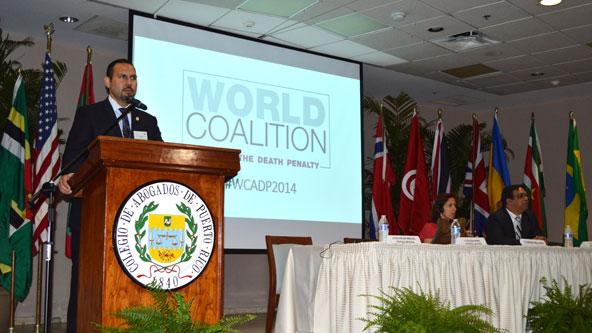
Article(s)
AGM focuses on mental health and progress in the Caribbean
By Inès Oulmokhtar, on 16 May 2014
The World Coalition is holding its General Assembly between 20-22 June in San Juan, Puerto Rico and invites the public to take part in the event.
2014
Puerto Rico
Document(s)
Maldives – Committee Against Torture (LOIPR) – Death Penalty – June 2022
By The Maldivian Democracy Network (MDN) , on 21 July 2022
2022
NGO report
World Coalition
Cruel, Inhuman and Degrading Treatment and Punishment
Maldives
More details Download [ pdf - 1443 Ko ]
This report addresses the Maldives’ compliance with its human rights obligations with respect to the death penalty. Despite its long-standing, de facto moratorium on executions, the Maldives sentenced two people to death in 2019, after sentencing no one to death in 2018.[1] At the end of 2019, there were 19 people on death row in the Maldives – three of whom had exhausted their appeals and five of whom were juveniles when the crime was committed.[2] The Maldives sentenced another individual to death in 2022, which represented the first time the country sentenced a foreign national to death.[3] The continued use of the death penalty in sentencing is particularly concerning given evidence of due process violations, including the use of torture to obtain confessions, the lack of effective and accessible complaint mechanisms for detained individuals, the lack of an independent judiciary, and the use of the death penalty as a sentence for crimes committed by juveniles.
- Document type NGO report / World Coalition
- Countries list Maldives
- Themes list Cruel, Inhuman and Degrading Treatment and Punishment
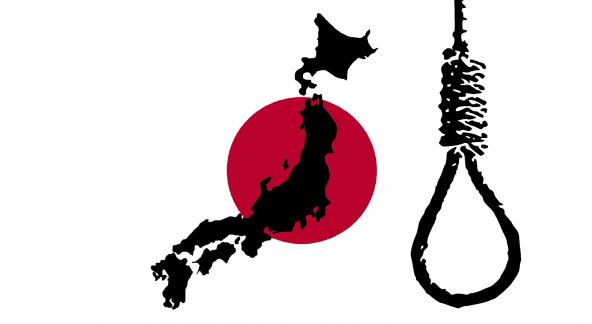
Article(s)
Regarding the execution in Japan of seven people
By World Coalition Against the Death Penalty, on 10 July 2018
STATEMENT – WORLD COALITION AGAINST THE DEATH PENALTY The World Coalition Against the Death Penalty would like to express its sympathy and support to all courageous anti-death penalty activists who have fought bravely to try to prevent the executions of seven people in Japan on the same day, on 6 July. The World Coalition calls […]
2018
Japan
Article(s)
Capital punishment now part of Togo’s history
on 24 June 2009
Togo’s National Assembly passed a bill abolishing the death penalty on June 23, 2009. Spanish Prime Minister José Luis Zapatero, who was visiting the country, attended the parliamentary session to witness the event.
2009
Togo
Togo
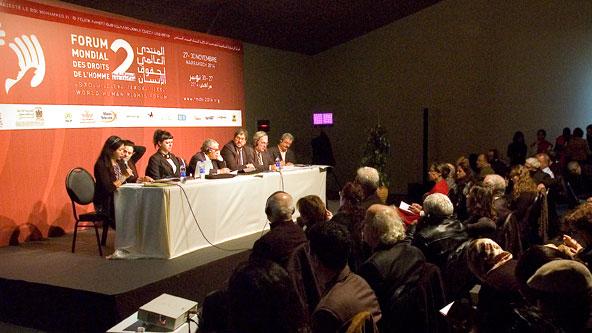
Article(s)
Morocco’s death penalty takes centre stage at Marrakesh forum
By Thomas Hubert (in Marrakesh, Morocco), on 28 November 2014
Debates on the abolition of the death penalty at the World Human Rights Forum have highlighted the situation in the host country among the major fronts in the abolitionist struggle.
2014
Morocco
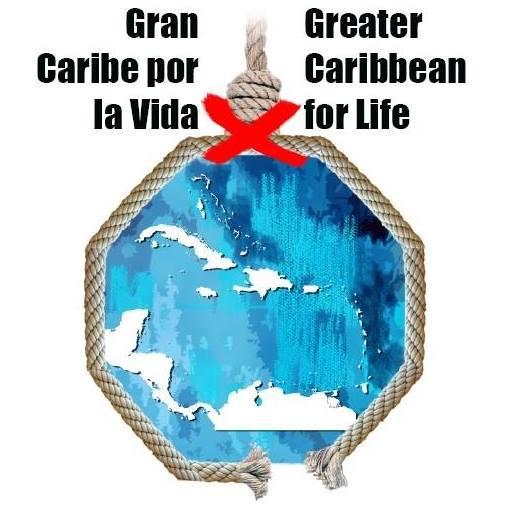
Article(s)
10 years with no hanging in the Caribbean
By Greater Caribbean for Life, on 19 December 2018
The Greater Caribbean for Life (GCL) notes that 19 December, 2018 marks the 10th anniversary of the hanging of Charles la Place in St Kitts and Nevis. He was the last person who was hanged in the English-speaking Caribbean.
2018

Article(s)
Abolition of the death penalty must be an integral part of crime prevention programmes and criminal justice reforms
By Amnesty International, on 5 March 2021
As the Fourteenth United Nations Congress on Crime Prevention and Criminal Justice is about to begin in Kyoto, Japan, the undersigned organizations urge the Economic and Social Council (ECOSOC) and its subsidiary bodies, including the UN Office on Drugs and Crime (UNODC); and all UN member states, including the Congress host country Japan, to make […]
2021
Public Opinion
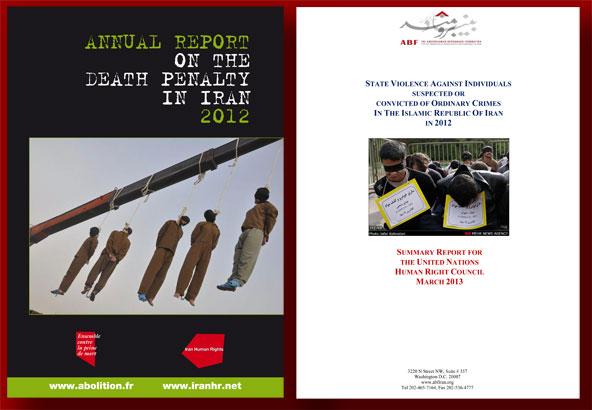
Article(s)
“Iran kills for possession of less than 50g of drugs”
By Thomas Hubert, on 9 April 2013
Annual reports published by two World Coalition member organizations of Iranian exiles expose the disproportionate use of the death penalty in Iran, mostly against drug users and traffickers.
2013
Drug Offenses
Iran (Islamic Republic of)
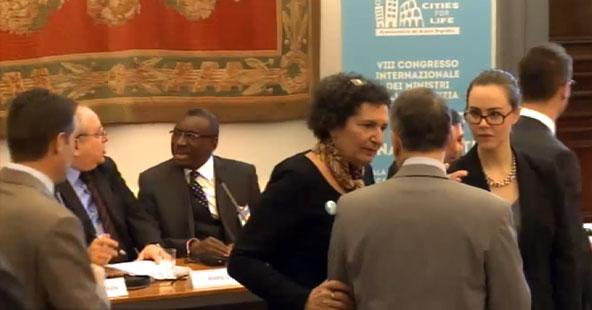
Article(s)
Justice ministers meet on the eve of Cities Against the Death Penalty
By Elizabeth Zitrin (World Coalition vice-president), in Rome, on 1 December 2013
More than 20 ministers of justice met in Rome for the annual conference on the abolition of the death penalty organised by the Community of Sant’Egidio and heard harrowing testimonies from courageous activists.
2013
Afghanistan
Belarus
Costa Rica
El Salvador
Italy
Philippines
Senegal
Switzerland
United States
Article(s)
State-sponsored report finds California’s death penalty is “dysfunctional”
on 9 July 2008
A recent report from a far-reaching commission established by the Californian senate on the administration of capital punishment in the state concluded that “the system is broken”.
2008
Innocence
United States
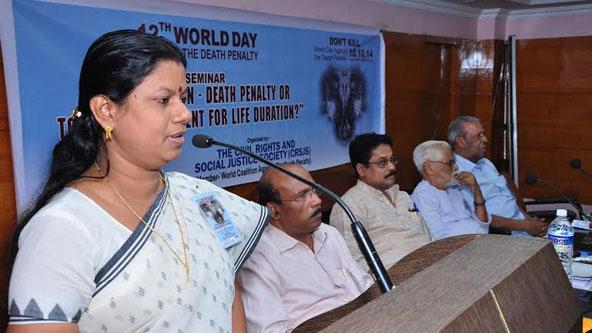
Article(s)
Links between death penalty and mental health exposed from Japan to Nigeria
By Thomas Hubert, on 15 October 2014
The 12th World Day Against the Death Penalty was marked by hundreds of actions on all continents, in the media and online.
2014
Japan
Mental Illness
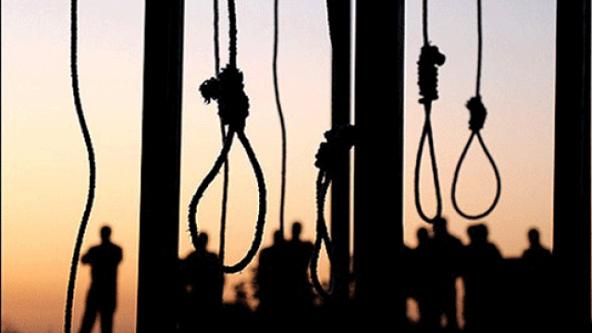
Article(s)
Joint statement from 48 coalitions, networks and human rights organizations from 12 Arab countries
By The Arab Coalition Against the Death Penalty, on 6 January 2016
The statement strongly condemns the execution of Nimr Baqir al-Nimr in Saudi Arabia and renewed its demand for Saudi Arabia to support the United Nations resolution on a global moratorium on the death penalty and to abolish the death penalty in national legislation.
2016
Saudi Arabia

Article(s)
Marc Bossuyt: “Countries that have not signed up to the Protocol should feel isolated”
By Pierre Désert, on 27 June 2008
Marc Bossuyt was UN Special Rapporteur for drawing up the Second Optional Protocol to the International Covenant on Civil and Political Rights. He is now president of Belgium’s Constitutional Court.
2008
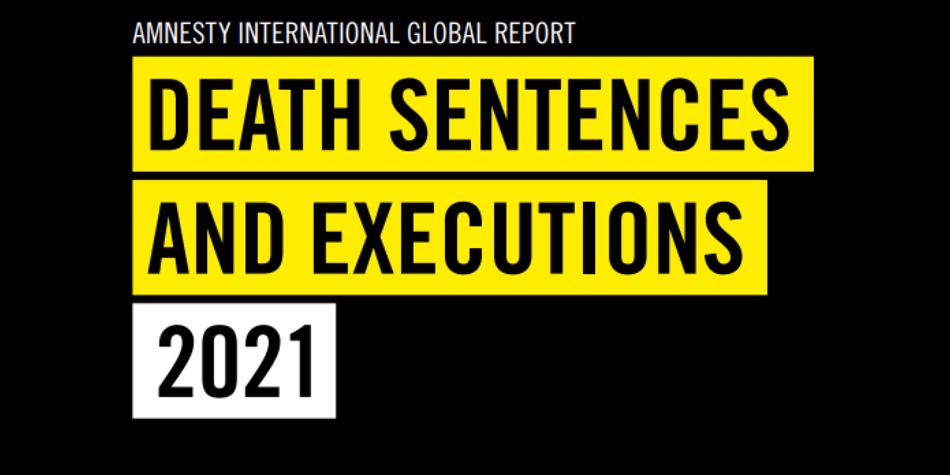
Article(s)
Executions on the rise, but progress toward abolition in 2021
By Amnesty International, on 9 June 2022
On 24 May, Amnesty International published their annual report on the global use of the death penalty, which shows the overall sentences and executions in 2021 Global figures Amnesty International recorded 579 executions in 18 countries in 2021, an increase of 20% from the 483 recorded in 2020. Despite these increases, the 2021 global executions figure constitutes the second-lowest figure recorded […]
2022
Death Row Conditions
Trend Towards Abolition
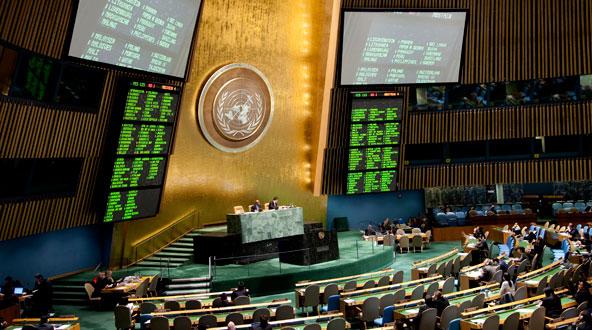
Article(s)
How to work with international bodies?
By Maria Donatelli, on 10 June 2013
The World Coalition is taking part in a workshop on mutual work relationships between international organisations and civil society at the 5th World Congress Against the Death Penalty. Here are tips for activists who would like to work with UN and regional bodies.
2013
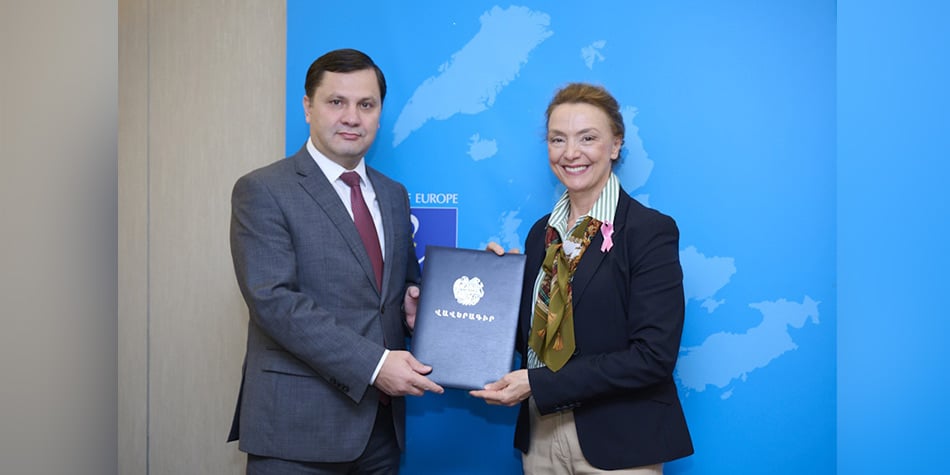
Article(s)
Entry into force of Armenia’s ratification of the European Protocol for abolition in all circumstances
By Aurélie Plaçais, on 22 March 2024
In February 2024, Armenia’s ratification of Protocol No. 13 to the Convention for the Protection of Human Rights and Fundamental Freedoms concerning the abolition of the death penalty in all circumstances entered into force. Armenia was already abolitionist for all crimes and a State Party to the Second Optional Protocol to the ICCPR, aiming at […]
2024
Armenia
Trend Towards Abolition
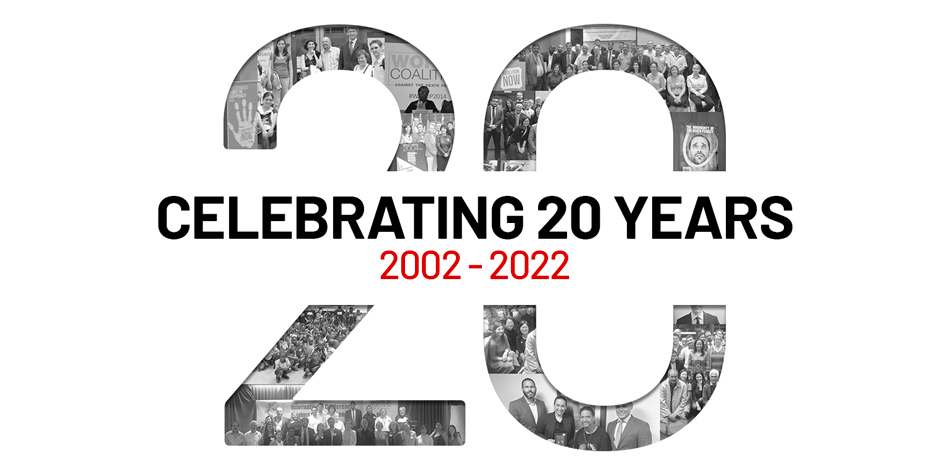
Article(s)
The World Coalition Against the Death Penalty celebrates its 20th anniversary!
on 13 May 2022
For this occasion, we wanted to give the floor to our founding member organizations. 20 years of memories, meetings, activism and fight with the hope to see one day a world without death penalty. Discover those testimonials in our newsletter.
2022

Article(s)
Côte d’Ivoire Accedes to the Second Optional Protocol to the ICCPR
By World coalition against the death penalty, on 8 July 2024
Côte d’Ivoire has acceded to the Second Optional Protocol to the ICCPR, which is the UN treaty aiming at the abolition of the death penalty, on 3 May 2024.
2024
Côte d'Ivoire

Article(s)
European Protocol for full abolition turns 20
By World Coalition Against the Death Penalty, on 3 May 2022
Today is the 20th anniversary of the adoption of Protocol No. 13 to the Convention for the Protection of Human Rights and Fundamental Freedoms, concerning the abolition of the death penalty in all circumstances.
2022
Armenia
Azerbaijan
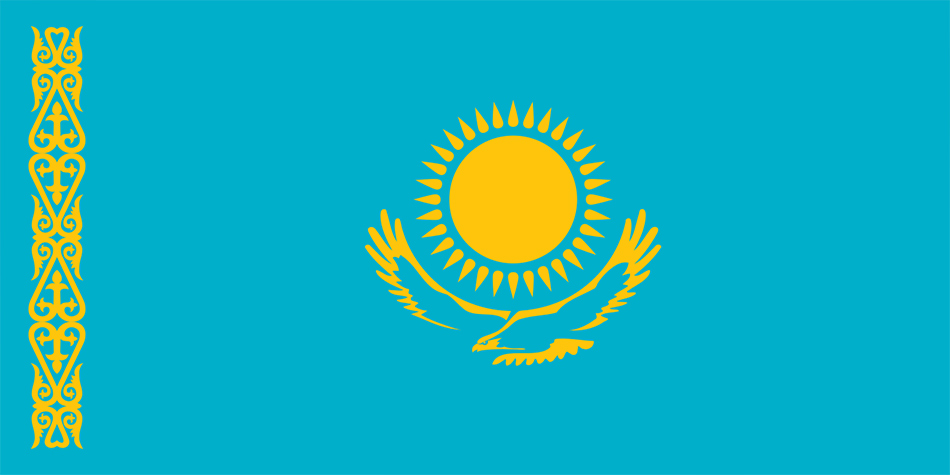
Article(s)
Kazakhstan Ratifies the Second Optional Protocol to the ICCPR
By Aurélie Plaçais, on 1 April 2022
Kazakhstan ratified the UN treaty aiming at the abolition of the death penalty on 24 March 2022.
2022
Kazakhstan
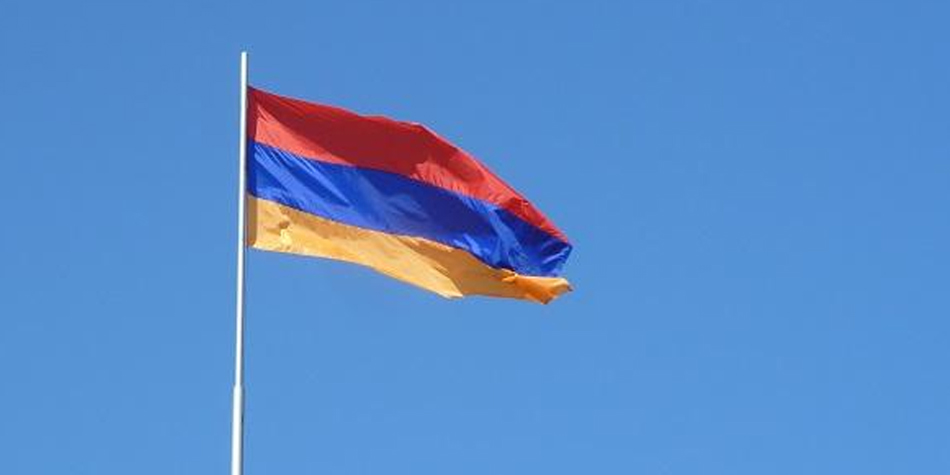
Article(s)
Armenia ratifies international treaty for irreversible abolition of the death penalty
By Aurélie Plaçais, on 25 March 2021
Armenia ratified the Second Optional Protocol to the ICCPR on 18 March 2021.
2021
Armenia

Article(s)
The Commonwealth of Virginia Abolishes the Death Penalty
By Louis Linel, on 25 March 2021
Virginia became the 23rd US State to formally ban capital punishment on 24 March 2021.
United States
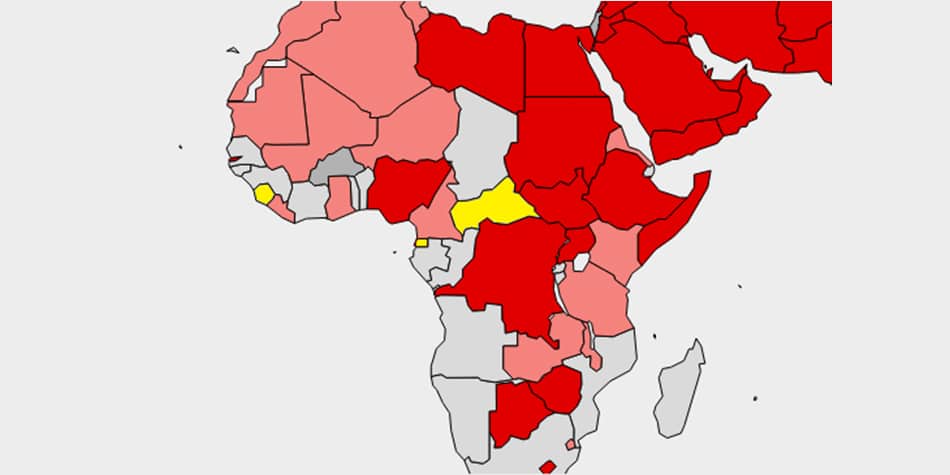
Article(s)
Africa : 3 abolitions of the death penalty in one year
By World Coalition Against the Death Penalty, on 20 October 2022
After Sierra Leone and the Central African Republic, Equatorial Guinea has adopted a new Penal Code that abolishes the death penalty for ordinary crimes.
2022
Central African Republic
Equatorial Guinea
Sierra Leone

Article(s)
246 People Removed from Death Rows in Zambia
on 29 January 2021
President Edgar Lungo announced, on 27 January 2021, that 246 death sentences had been commuted into life, a more than welcome decision that has brought the overall number of commutations to over 500 since 2015.
2021
Clemency
Zambia
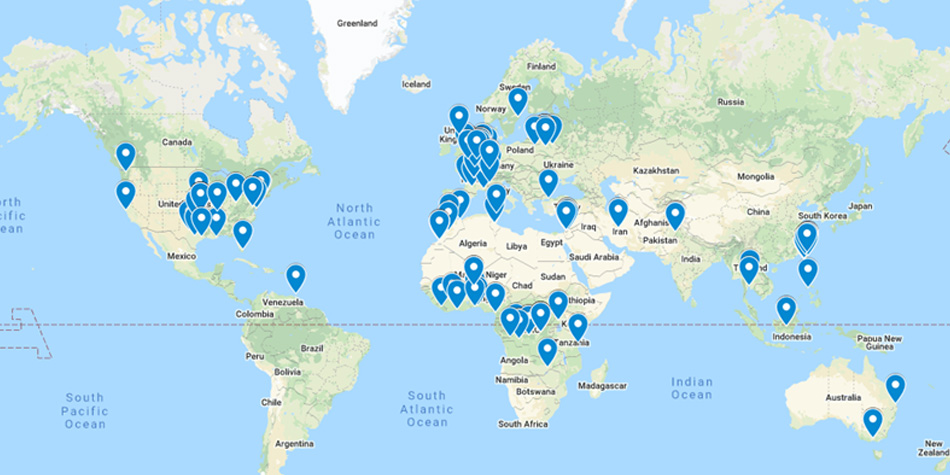
Article(s)
Take Action for World Day 2022!
By World coalition against the death penalty, on 9 September 2022
Take action now! The 20th World Day Against the Death Penalty is an excellent opportunity to publicly oppose the use of this inhumane punishment and to support those who are fighting for its abolition all over the world. > Spread the word on Facebook, Twitter and Instagram: #nodeathpenalty > Find out more about the World […]
2022
Cruel, Inhuman and Degrading Treatment and Punishment

Article(s)
Take Action for World Day 2021!
By World Coalition Against the Death Penalty, on 10 September 2021
Take action now! The 19th World Day Against the Death Penalty is an excellent opportunity to publicly oppose the use of this inhumane punishment and to support those who are fighting for its abolition all over the world.
2021
Drug Offenses
Fair Trial
Women
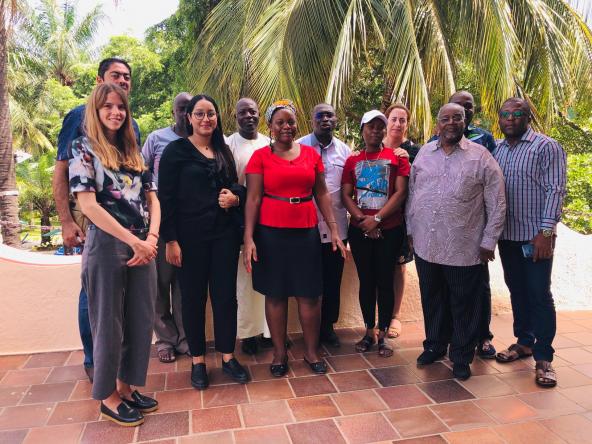
Article(s)
Children and the death penalty in Sub-Saharan Africa: NGO Forum and the 65th ACHPR Session
By Connie Numbi and Bronwyn Dudley, on 9 December 2019
The NGO Forum and the subsequent 65th ACHPR Session (African Commission on Human and People’s Rights) was held in Banjul, the Gambia from 17th October to the 10 November 2019.
2019
Juveniles

Article(s)
The 8th World Congress reaffirms the importance of gender-based discussions
By World Coalition Against the Death Penalty, on 16 December 2022
The 19th World Day Against the Death Penalty highlighted the intersectional discrimination that women face in the judicial process leading to the death penalty, making visible one facet of the links between the death penalty and gender discrimination.
2022
Gender
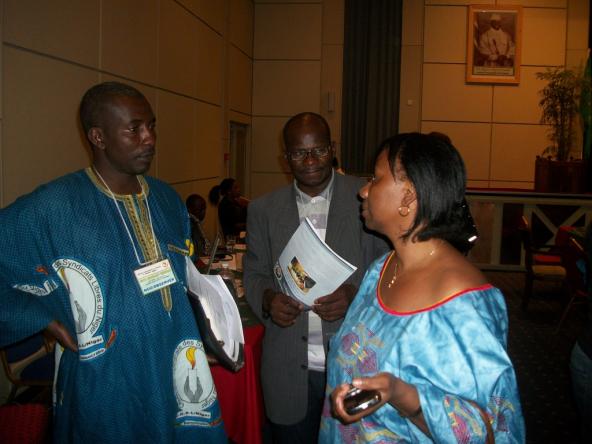
Article(s)
African human rights body targets death penalty
on 16 May 2011
The abolition of the capital punishment figured prominently at the 49th session of the African Commission of Human and People’s Rights.
2011
Algeria
Botswana
Democratic Republic of the Congo
Equatorial Guinea
Mauritania
Public Opinion
Somalia
Sudan
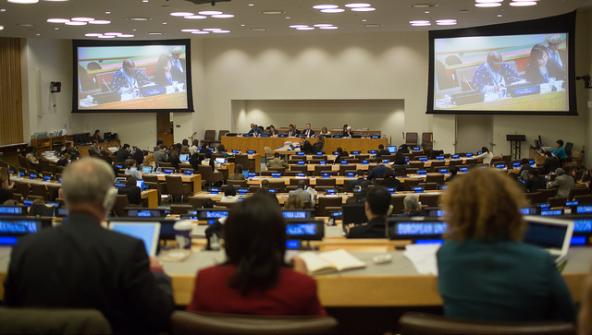
Article(s)
Call for Moratorium on Executions Gains Record-High Support at Committee Vote
By Amnesty International & Comunità di Sant'Egidio, on 16 November 2018
Today the international community offered unprecedented support to a UN call to halt executions when the Third Committee of the UN General Assembly considered a draft resolution on a moratorium on the use of the death penalty.
2018
Moratorium
Article(s)
Mali: is abolition in sight?
on 4 June 2008
With public meetings, football matches and media action Malian activists have been covering all bases to try to push through adoption of a law abolishing the death penalty before the end of the parliamentary session.
2008
Innocence
Mali
Mali
Moratorium
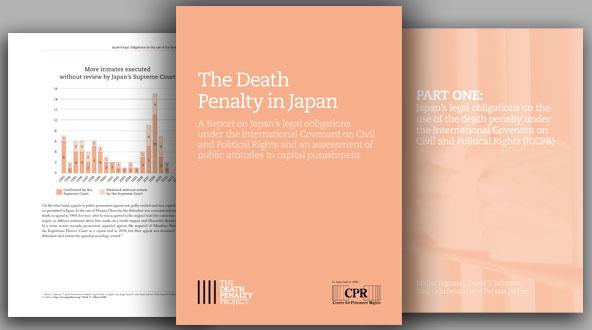
Article(s)
Japan in breach of international standards, opinion wavering – study
By Thomas Hubert, on 14 March 2013
A report published by the Death Penalty Project and the Center for Prisoners’ Rights shows that Japanese law and practice on capital punishment violate international treaties, and questions the high level of public support for the death penalty reported by the authorities.
2013
Japan
Public Opinion
Document(s)
UN Special Procedures toolkit – World Day 2022
By FIACAT and the World Coalition Against the Death Penalty, on 26 September 2022
2022
World Coalition
frMore details Download [ pdf - 335 Ko ]
There are several ways in which individuals and non-governmental organizations (NGOs) can work with the UN to report human rights violations. One way is through the special procedures of the UN Human Rights Council (HRC). Find out how to work with them here.
- Document type World Coalition
- Available languages Travailler avec les Procédures spéciales des Nations unies - Journée mondiale 2022
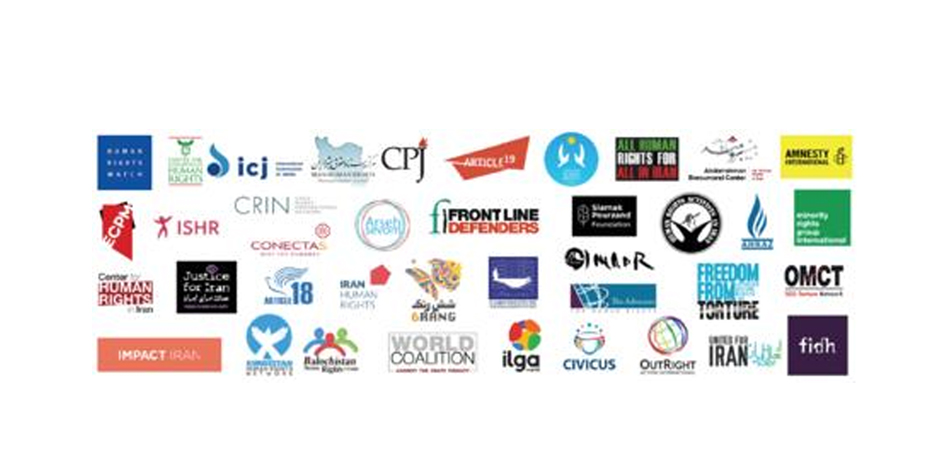
Article(s)
Widespread and systematic violations of human rights in Iran
By Impact Iran, on 12 March 2021
Joint letter sent to Member states of the United Nations Human Rights Council on 12 March 2021
2021
Iran (Islamic Republic of)

Member(s)
Human Rights and Democracy Media Center (SHAMS)
on 30 April 2020
Human Rights and Democracy Media Center “SHAMS” is a Palestinian non-governmental non-profit organization, established in 2003 in Ramallah by a group of academicians, educated, advocates and human rights activists .“SHAMS” Center holds Special Consultative Status with the Economic and Social Council (ECOSOC) of the United Nations “SHAMS” Center believes that dissemination and generalization of human […]
2020
State of Palestine
Article(s)
800 cities light up for life
on 17 November 2008
On November 30, monuments in nearly 800 cities across the globe will light up to celebrate “Cities for Life – Cities Against the Death Penalty”.
2008
Italy
Public Opinion
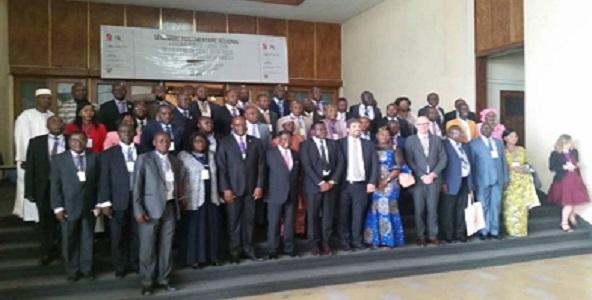
Article(s)
Parliamentarians from Francophone Africa meet in Kinshasa to discuss the abolition of the death penalty
By Parliamentarians for Global Action, on 12 June 2018
The 1st and 2nd June 2018, Parliamentarians for Global Action (PGA), Ensemble contre la peine de mort (Together against the death penalty, ECPM) and Culture pour la paix et la justice (Culture for peace and justice, CPJ) organised in Kinshasa (Democratic Republic of the Congo, DRC) a regional parliamentary seminar entitled “Abolition of the death penalty in Africa: the role of parliamentarians”, with the support of the European Union and of the Honourable Aubin Minaku, Speaker of the National Assembly of the DRC and Member of PGA.
2018
Democratic Republic of the Congo
Public Opinion
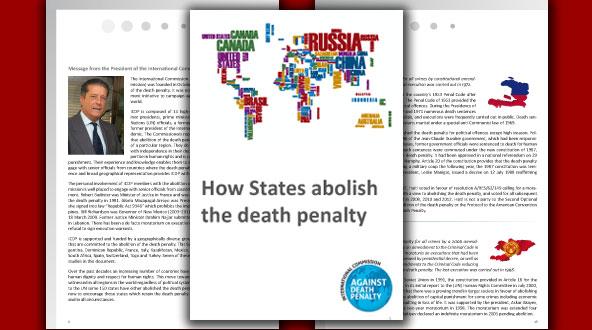
Article(s)
Study explores variety of national paths to abolition
By Thomas Hubert, on 3 May 2013
From courageous political leaders to traditional African values, the International Commission against the Death Penalty’s analysis of the factors leading to the abolition of capital punishment in 13 countries offers advice to retentionist countries.
2013
Cambodia
Haiti
Mongolia
Norway
Public Opinion
Rwanda
Senegal
South Africa
United States
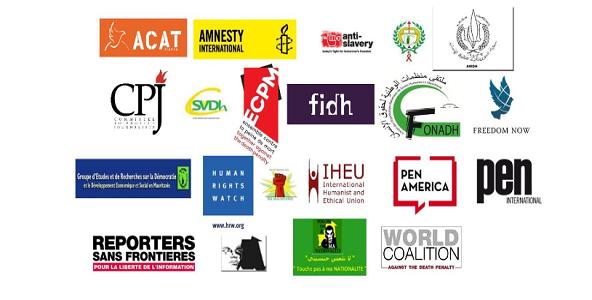
Article(s)
Mandatory Death Penalty for Blasphemy in Mauritania
By World Coalition Against the death penalty, on 11 May 2018
Through this joint statement twenty one national and international NGOs, calls upon Mauritanian authorities to reverse the recent adoption of a law on apostasy related crimes making the death penalty mandatory for blasphemy.
2018
Mauritania
Public Opinion

Article(s)
Top UN representatives take stance on death penalty at Human Rights Council
By World Coalition Against the Death Penalty, on 14 March 2014
From UN Secretary General Ban Ki-moon to abolitionist and retentionist government ministers and World Coalition members, participants to a recent discussion on the death penalty placed the issue high on the international agenda.
2014
Afghanistan
Benin
Brazil
Cruel, Inhuman and Degrading Treatment and Punishment
Iran (Islamic Republic of)
Mongolia
Morocco
Myanmar
Namibia
Pakistan
Saudi Arabia
Sierra Leone
Singapore
Sudan
United States
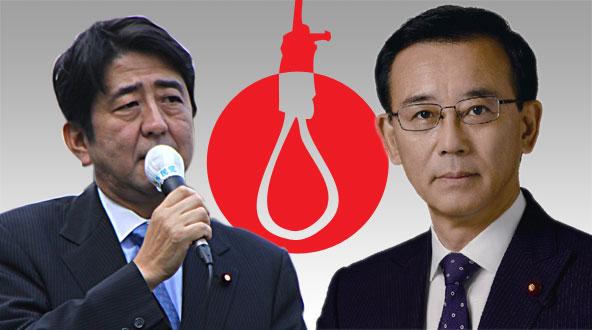
Article(s)
First executions under Abe government raise fears of more
By Thomas Hubert, on 21 February 2013
Abolitionists worldwide protest the execution of three prisoners in Japan on 21st February and call on the new justice minister to heed international calls for restraint.
2013
Japan
Moratorium
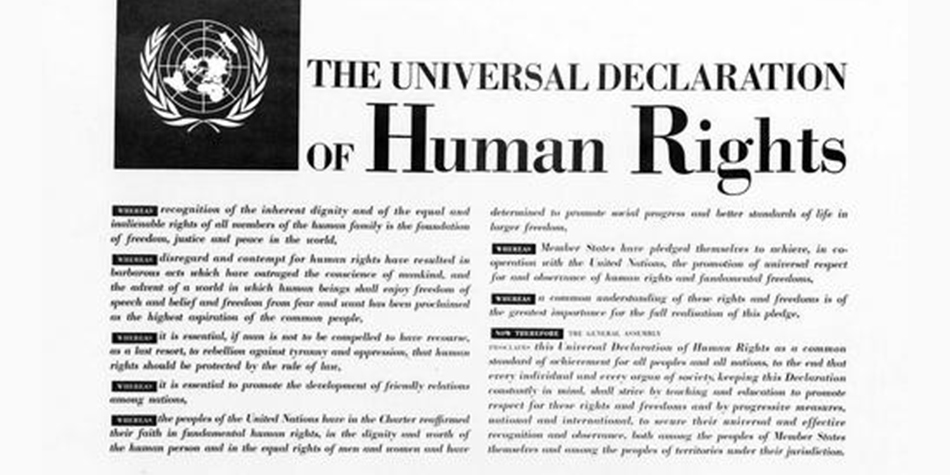
Article(s)
Statement on the occasion of the International Human Rights Day
By World Coalition Against the Death Penalty, on 10 December 2020
Humanity and the global human rights movement, including the World Coalition Against the Death Penalty, are celebrating the 72nd anniversary of the adoption of the Universal Declaration of Human Rights on 10 December 1948. This day has been commemorated by the United Nations as International Human Rights Day.
2020
Moratorium

Article(s)
World Coalition members hail abolition in Maryland
By Thomas Hubert, on 15 March 2013
The House of Delegates has passed a bill replacing the death penalty with life in prison without parole. The governor of the US state has been supporting the bill and promised to sign it into law.
2013
Indonesia
United States
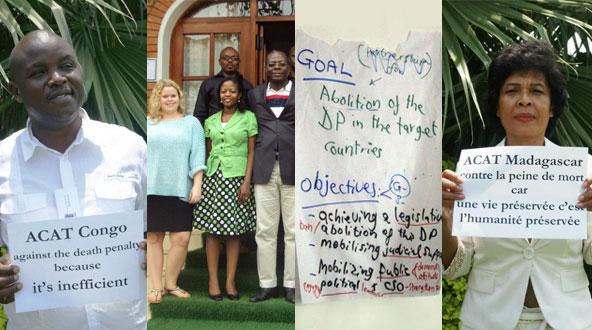
Article(s)
Central and Eastern African activists brainstorm for abolition
By Thomas Hubert, on 6 March 2013
February was a month of intense strategising for members of the regional coalition against the death penalty as well as region’s ACATs, as two meetings convened to discuss the best options to spur on Africa’s march towards abolition.
2013
Moratorium
Article(s)
Universal abolition will happen when four key countries change sides
on 28 February 2010
The US, Iran, China and Japan hold a strategic cultural or geographic position, but the road to abolition remains blocked in those countries.
2010
China
Death Row Conditions
Iran (Islamic Republic of)
Japan
Juveniles
Switzerland
United States
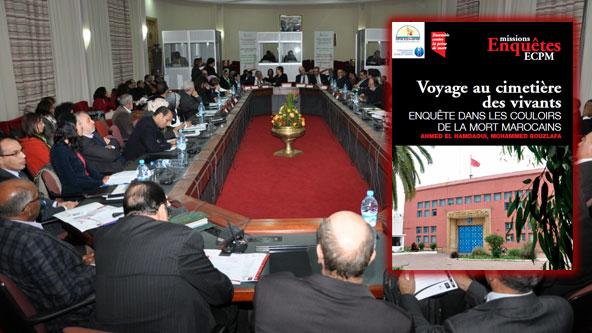
Article(s)
Abolitionist movement shifts up a gear in Morocco
By Thomas Hubert, on 20 December 2013
Through engagement with members of Parliament, the publication of an unprecedented report on death row conditions and the launch of a new website, the Moroccan abolitionist movement is entering a new dimension.
2013
Mental Illness
Morocco
Article(s)
Arab abolitionists organise to act together
on 8 August 2007
Abolitionists in the Arab World have been generating increased mobilisation and improved co-ordination, with the assistance of Penal Reform International, a member of the World Coalition.
2007
Algeria
Egypt
Jordan
Lebanon
Moratorium
Morocco
State of Palestine
Tunisia
Yemen
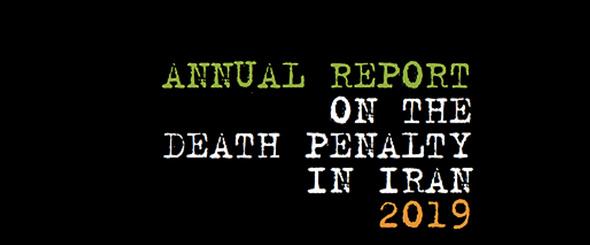
Article(s)
Iran: Annual report on the death penalty 2019
By Iran Human rights and ECMP (Together Against the Death Penalty), on 4 May 2020
Iran Human Rights (IHR) and ECPM (Together Against the Death Penalty) published its 12th report on 31 march 2020. The report provides an assessment and analysis of the death penalty trends in 2019 in the Islamic Republic of Iran.
2020
Iran (Islamic Republic of)
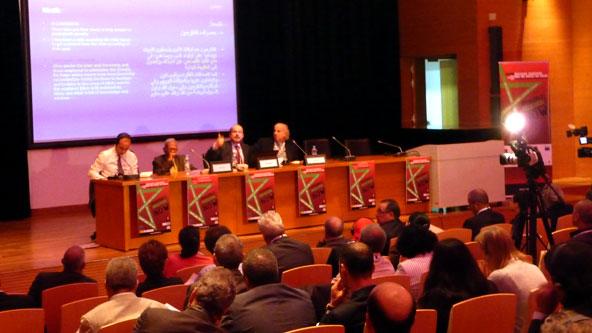
Article(s)
Abolitionists from the whole Arab World hold their first congress
By Aurélie Plaçais, on 22 October 2012
The Regional Congress on the Death Penalty held in Rabat, Morocco between 18-20 October highlighted the key role of civil society in pushing the abolitionist agenda in a region affected by deep changes.
2012
Algeria
Egypt
Jordan
Mauritania
Moratorium
Morocco
Public Opinion
Tunisia

Article(s)
Caribbean Court of Justice strikes down mandatory death penalty in Barbados
By Death Penalty Project, on 27 June 2018
In probably the most significant judgment to arise from the Caribbean Court of Justice (CCJ) so far, the region’s highest court has unanimously declared the mandatory death penalty unconstitutional in Barbados, finally settling an issue which has occupied domestic and international tribunals for almost 15 years.
2018
Barbados

Member(s)
Witness to Innocence
on 30 April 2020
The mission of Witness to Innocence (WTI) is to unite U.S. exonerated death row survivors and their loved ones to become a powerful force for social justice and transformation. WTI seeks to abolish the death penalty, to reform the U.S. criminal justice system to prevent wrongful convictions, and to secure fair financial compensation and social […]
2020
United States
Article(s)
World Forum an opportunity to gather abolitionists
on 4 July 2008
As the World Coalition held its general meeting in Nantes at the end of June, discussions focussed on the involvement of corporations and local authorities.
2008
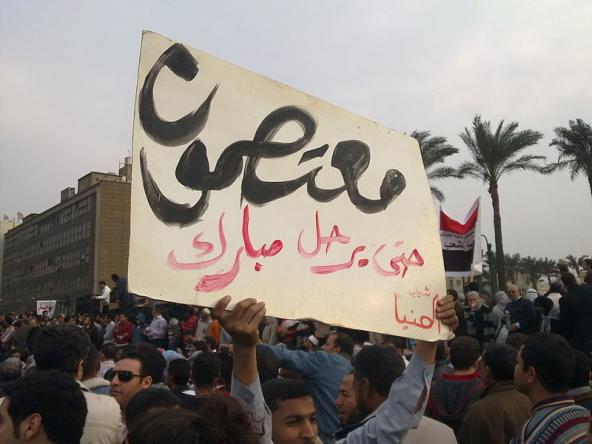
Article(s)
Will Arab revolutions bring new hope for abolition?
on 4 April 2011
The winds of change have brought fresh air to the abolitionist cause in countries throughout the Middle East and North Africa, with new faces in power reigniting a stalled debate.
2011
Algeria
Egypt
Lebanon
Mauritania
Moratorium
Morocco
Public Opinion
Syrian Arab Republic
Terrorism
Tunisia
Yemen

Article(s)
Greater Caribbean for Life responds to the call for the resumption of the death penalty in the Republic of Trinidad and Tobago
By Greater Caribbean for Life and Emmanuel Trépied, on 21 July 2017
Emotions are running high in Trinidad and Tobago because of “runaway crime,” and once again the country finds itself in the throes of looking for ways in which to resume hanging. The Greater Caribbean for Life (GCL) urges Trinidad and Tobago’s government to focus on human development and crime prevention rather than expend time and energy in seeking to resume hanging.
2017
Trinidad and Tobago
Document(s)
Prisoners on Ohio Execution List Defined by Intellectual Impairment, Mental Illness, Trauma and Young Age
By Fair Punishment Project, on 1 January 2017
2017
Academic report
More details See the document
26 individuals that Ohio intends to execute each suffer from some combination of severe mental illness, intellectual disability, serious childhood trauma from physical and sexual abuse, or were young adults with impaired judgment when they committed their crimes.
- Document type Academic report
- Themes list Mental Illness, Intellectual Disability, Death Penalty,
Document(s)
UN Special Procedures toolkit – World Day 2023
By FIACAT and the World Coalition Against the Death Penalty, on 18 September 2023
2023
World Coalition
frMore details Download [ pdf - 345 Ko ]
There are several ways in which individuals and non-governmental organizations (NGOs) can work with the UN to report human rights violations. One way is through the special procedures of the UN Human Rights Council (HRC). Find out how to work with them here.
- Document type World Coalition
- Available languages Travailler avec les Procédures spéciales des Nations unies - Journée mondiale 2023
Document(s)
Addressing the Gender Dimension of the Death Penalty: Coaction Between Parliamentarians and Civil Society
By World Coalition Against the Death Penalty, on 10 September 2021
2021
Working with...
Women
frMore details Download [ pdf - 311 Ko ]
Created on the occasion of the 19th World Day Against the Death Penalty (10/10/21), this tool’s aim is to provide practical advice and concrete suggestions to civil society organizations who wish/ are already collaborating with parliamentarians to end the death penalty and bring attention to women sentenced to death.
- Document type Working with...
- Themes list Women
- Available languages Traiter la dimension de genre de la peine de mort : Collaboration entre les parlementaires et la société civile
Document(s)
The Death Penalty and Intellectual Disability: A Guide
By Edward Polloway / AAIDD- American Association on Intellectual and Developmental Disabilities, on 8 September 2020
2020
Book
United States
More details See the document
In the 2002 landmark decision Atkins v. Virginia 536 U.S. 304, the Supreme Court of the United States ruled that executing a person with intellectual disability is a violation of the Eighth Amendment of the U.S. Constitution, which prohibits “cruel and unusual punishment,” but left states to determine their own criteria for intellectual disability. AAIDD has always advocated against the death penalty for people with intellectual disability and has long provided amicus curiae briefs in Supreme Court cases. Thus, in this comprehensive new book published by AAIDD, notable authors in the field of intellectual disability discuss all aspects of the issues, with a particular focus on foundational considerations, assessment factors and issues, and professional concerns in Atkins assessments.
- Document type Book
- Countries list United States
- Themes list Mental Illness, Intellectual Disability,
Document(s)
Race and Age Characteristics of those Sentenced to Death before and after Roper
By Frank R. Baumgartner, on 29 August 2022
2022
Academic report
frMore details Download [ pdf - 111 Ko ]
“The penalty of death is more likely to be imposed on individuals who suffer from various disadvantages: poverty, poor lawyers, mental illness, intellectual deficits, for example. It also is more common among those with white victims compared to minority victims, those who commit crimes in jurisdictions that have previously sentenced more individuals to death, and those who committed their crimes in the 1980s or 1990s as compared to more recent years (see Baumgartner et al. 2018 for details). In this short report I focus on two particular disadvantages: age and minority status.” – Frank R. Baumgartner
Link to the article: https://deathpenaltyinfo.org/news/report-racial-disparities-in-death-sentences-imposed-on-late-adolescent-offenders-have-grown-since-supreme-court-ruling-banning-juvenile-death-penalty
Document(s)
PRIMER ON TRANSGENDER INDIVIDUALS FACING THE DEATH PENALTY
By World Coalition Against the Death Penalty; FIACAT; The Advocates for Human Rights; Cornell Center on the DP Worldwide, on 30 June 2021
2021
Campaigning
Women
frMore details Download [ pdf - 450 Ko ]
On 10 October 2021, the World Coalition Against the Death Penalty and other abolitionist organizations worldwide will celebrate the 19th World Day Against the Death Penalty.
This year the World Day is dedicated to women who risk being sentenced to death, who have received a death sentence, who have been executed, and to those who have had their death sentences commuted, have been exonerated or pardoned. Included in this theme, are trans women and other gender diverse individuals, who are a minority on death row but who are discriminated against on the basis of gender.
Capital punishment disproportionately targets socially marginalized individuals; it is no different for transgender people, who may face discrimination in every aspect of their lives.
- Document type Campaigning
- Themes list Women
- Available languages FICHE D’INTRODUCTION SUR LES PERSONNES TRANS PASSIBLES DE LA PEINE DE MORT

